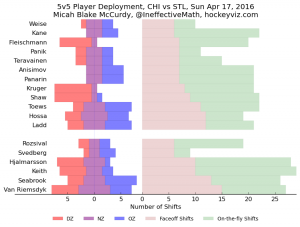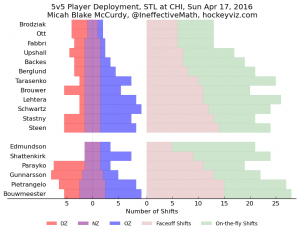For anyone who has tuned into the Blues and Blackhawks Round 1 series, you’ve witnessed the quintessential “Western Conference hockey” many hockey fans have come to love. Rough, fast, methodical, and just flat out entertaining. It hasn’t had the offensive flare or high-scoring games like other series, considering Brian Elliott and Corey Crawford have been running a goalie clinic from the drop of the puck in Game 1.
Aside from the obvious strong goaltending teams need in the playoffs, there are three things that stand out as major hit points for the Blues. Between the away game atmosphere, young-yet-veteran defense core lead by Alex Pietrangelo, and a little extra spunk from Steve Ott, Game 4 is in their sights.
A Home Away From Home
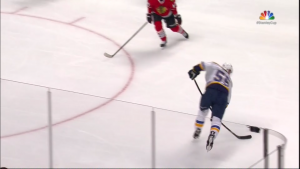
The United Centre is undoubtedly a tough place to play. St. Louis beat the Blackhawks at home, in the playoffs for the first time since 2002. It was also over 70 games ago since the ‘Hawks lost after leading by two periods. It shows determination and teamwork on the part of the Blues. They need to silence the crowd, just like Colton Parayko did with his quick answer on the powerplay, or Patrick Berglund’s one-hopper past Crawford in the third to tie things up at 2. “The 6th man” can give a team energy, provide a boost, but St. Louis has already muted the Chicago arena once. It’s time to do it again.
Road games are more fun when you watch with a home crowd! Info for Game 4 Blues Bashes: https://t.co/3u43Jcyq1Uhttps://t.co/uVrkLHUgl0
— St. Louis Blues (@StLouisBlues) April 18, 2016
Added Pressure
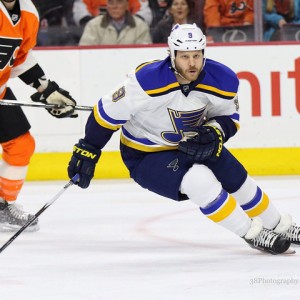
Andrew Shaw proved to be a difference-maker in more ways than one in Game 2 for Chicago. With the return of Steve Ott to the lineup, it was the Blues’ turn to apply some pesky pressure to the stingy Blackhawks roster. Ott dawned the blue note for the first time in months, recovering from a hamstring injury and colitis. The forward has made quite the career of being not only offensively minded, but a real thorn in the opposition’s side. He’s fast, smart, and has a wicked mouth to go along with it.
Steve Ott’s return to the lineup gives his team an even bigger chip on their shoulder, one that can be shaken off with some extra toughness and veteran presence. Ott’s been through this all before, experience in the playoffs is nothing new, he dug through the post-season trenches with Dallas. He may not be the guy scoring the goals, but when Chicago sees that #9 zipping around the rink, it’s a different game out there
Pietrangelo: “(Ott) was in everybody’s face. That’s why I used to hate playing against him, but I like him now.” #stlblues
— St. Louis Blues (@StLouisBlues) April 18, 2016
Defense in the Best Offence
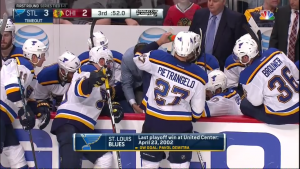
Sure, the classic “offence is the best defense” phrase still applies. St. Louis needs to score more than Chicago, ok. When you look at the goal totals from the last three games, it’s clear this is a tight-checking Round 1 with little margin for error and few scoring chances. The Blues’ defense has had something to say about the high-scoring Blackhawks. While leaders like Jonathan Toews and Marian Hossa didn’t put up their typical scoring numbers this year, Patrick Kane is always swiftly making his way around the offensive zone.
Playing almost 30 minutes in all three games, Alex Pietrangelo has led the way for St. Louis on the back end. Blocking key shots (along with the rest of the d-core) and jumping up into the offensive play whenever possible. The Blues have been excellent at exiting their own zone and making quick transitions up the ice in Round 1; the less time Chicago has to set up, the less they can hurt the Blues.
Despite Pietrangelo and fellow defenseman Jay Bouwmeester logging lots of back-end minutes, the rest of the blue line has stepped up each and every shift. Forwards are doing their part as well, as players like Alex Steen and captain David Backes (among others) are frequently seen below the hash-marks and battling along the boards.The charts below give a visual representation of where players were playing on the ice in Game 3.
What St. Louis needs to do is keep up this trend, forcing players like Andrew Shaw and Duncan Keith to start in the defensive zone, while Jori Lehtera, Jaden Schwartz, and Alex Steen play big offensive minutes.
